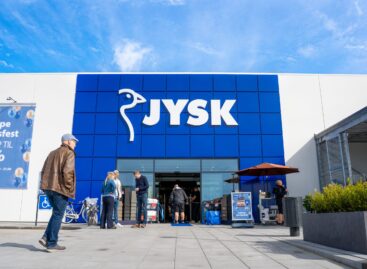Plant-based nutrition
Last October the National Association of Plant Based Food Manufacturers and Distributors (NÉGYOSZ) and Trend International Kft. did a nationwide representative survey on the attitudes of domestic consumers regarding their plant-based food preferences.
This article is available for reading in Trade magazin 2024/2-3
Key issues, aim of the research and consumption habits
“In recent years the market for plant-based foods has been growing steadily, and the trend is expected to continue in the future. Plant-based foods are increasingly at the centre of consumer preferences and food industry innovation”, says István Miskolczi, CEO of NÉGYOSZ. NÉGYOSZ and Trend International Kft.’s research sheds light on changes in consumer attitudes and preferences. The findings of the study have also been compared with the results of the Smart Protein 2023 survey, conducted by ProVeg International and Innova Market Insight in 11 EU countries.
NÉGYOSZ’s research set out to explore the current attitudes of Hungarians towards different types of diets, such as flexitarian, vegetarian and vegan, and to understand the related attitudes. The research reveals that the vast majority of the Hungarian population (84%) consider themselves omnivores, while flexitarians represent 13%.
Preferences, attitudes and a shift in consumption trends
The research has made it clear that only a smaller proportion of the Hungarian population is open to plant-based products. However, a well-identified group, those who frequently opt for organic and premium foods, has a higher awareness of nutrition. This shopper group also has a significantly higher proportion of flexitarians. The flexitarian diet is becoming more and more popular, especially among those consumers who are moving towards healthier and more sustainable eating options. Comparing the results with the findings of of the Smart Protein report shows: the countries surveyed in the latter started to go flexitarian at the same time as Hungary, but with a markedly greater momentum, e.g. due to the better financial situation of consumers.
Pros and cons
Price is the most common deterrent when it comes to buying plant-based alternatives, according to 60% of Hungarian consumers and 38% of European shoppers. 57% of Hungarians consider animal welfare to be an important factor, and 48% of respondents think a plant-based diet has health benefits. As for the environment, 19% reckon a plant-based diet contributes little or not at all to protecting the environment; 32% are neutral on this subject, while 36% believe it is somewhat important, and a further 13% think it is important. //
Related news
Protein, gut health and mental wellbeing – these trends will shape global food innovation in 2026
🎧 Hallgasd a cikket: Lejátszás Szünet Folytatás Leállítás Nyelv: Auto…
Read more >Cheese-cocoa-peach jam: these are the most popular cookie flavors
🎧 Hallgasd a cikket: Lejátszás Szünet Folytatás Leállítás Nyelv: Auto…
Read more >Hungarians don’t replace their furniture – JYSK research reveals a conscious, long-term planning market
🎧 Hallgasd a cikket: Lejátszás Szünet Folytatás Leállítás Nyelv: Auto…
Read more >Related news
Festival buzz at the 60th anniversary EuroShop trade fair
🎧 Hallgasd a cikket: Lejátszás Szünet Folytatás Leállítás Nyelv: Auto…
Read more >








